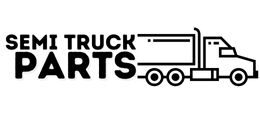Essential Guide to Heavy Truck Parts Manufacturing Key Components, Trends, and Tips
The Importance of Heavy Truck Parts in the Industry
Heavy trucks play a pivotal role in the transportation and logistics sector, delivering goods across vast distances. The efficiency and reliability of these trucks depend heavily on the quality and durability of their components. Every part, from the engine to the suspension system, is crucial for the overall performance of the vehicle.
The significance of high-quality heavy truck parts cannot be overstated. They ensure that trucks operate safely and efficiently, reducing the risk of breakdowns and increasing the vehicle’s lifespan. In a fast-paced industry where downtime means lost revenue, investing in top-tier parts is vital for businesses that rely on heavy trucks.
Additionally, the performance of these parts directly influences fuel efficiency, emissions control, and maintenance costs, making it essential for fleet operators to partner with reliable manufacturers. By using superior truck parts, companies can minimize operational costs while boosting their overall productivity. Therefore, understanding the importance of these components is the first step in making informed decisions about truck part procurement.
Key Components of Heavy Trucks
Heavy trucks are complex machines composed of various critical components that work together to ensure smooth and efficient operations. Each part plays a specific role in maintaining the vehicle’s overall performance, safety, and reliability.
Engine: The heart of any truck, the engine provides the power needed for movement. Heavy-duty engines are designed to handle the demands of long-distance travel and heavy loads. Ensuring the engine’s longevity and efficiency is essential for optimal performance.
Transmission Systems: The transmission controls the power from the engine to the wheels, enabling the truck to change speeds efficiently. A reliable transmission system is crucial for maintaining fuel efficiency and handling tough terrains.
Brake Systems: Safety is paramount in heavy trucks, and the brake system is one of the most important components. Advanced brake systems ensure that trucks can stop safely, even when carrying heavy loads, minimizing the risk of accidents.
Axles and Suspension: Axles are responsible for supporting the weight of the truck, while the suspension system provides stability by absorbing shocks and bumps on the road. Together, these components ensure smooth handling and ride comfort, especially on rough terrains.
By understanding the key components of a heavy truck, fleet operators can make more informed decisions when selecting parts and ensure their trucks are equipped for long-lasting performance.
Choosing the Right Heavy Truck Parts Manufacturer
Selecting the right heavy truck parts manufacturer is crucial for ensuring the longevity and efficiency of your fleet. With so many options available, it’s important to consider several key factors to make an informed choice.
Quality Standards and Certifications: A reputable manufacturer should adhere to high-quality standards and possess relevant industry certifications. These certifications ensure that the parts meet safety and performance requirements, which are critical for the smooth operation of heavy trucks.
Reputation and Reviews: Look for manufacturers with a solid track record in the industry. Customer reviews, case studies, and word-of-mouth recommendations can provide insight into the manufacturer’s reliability and the quality of their parts.
Customization and Innovation: Some manufacturers offer tailored solutions for specific needs, which can be a significant advantage. Whether you require custom-made parts or innovative features to enhance vehicle performance, a manufacturer that embraces customization can help meet your unique requirements.
After-Sales Support and Warranty: Good customer support and strong warranty options are essential in case any issues arise with the parts after purchase. A reliable manufacturer will offer support throughout the product’s lifecycle, ensuring peace of mind for fleet operators.
Choosing the right manufacturer goes beyond just price. It involves ensuring quality, reliability, and ongoing support to keep your heavy trucks running smoothly and efficiently.
Quality Control in Heavy Truck Parts Manufacturing
Quality control is a vital aspect of heavy truck parts manufacturing, ensuring that each component meets stringent standards before it reaches the market. Manufacturers employ a variety of processes and techniques to maintain consistency and reliability across their products.
Testing and Inspections: Leading manufacturers conduct thorough testing on each part to ensure it meets performance standards. This may include durability tests, stress testing, and safety evaluations. Each part undergoes inspections at various stages of production, ensuring that any defects are detected early in the process.
Material Selection: The quality of raw materials directly affects the performance and lifespan of the parts. Manufacturers who use high-grade materials like reinforced steel, heavy-duty plastics, and advanced alloys ensure that the components can withstand the demands of heavy trucks in all driving conditions.
Precision Manufacturing: Using advanced machinery and technology, manufacturers achieve high levels of precision in producing truck parts. This minimizes defects and ensures that parts fit perfectly during assembly. Precision is especially crucial for components such as the engine, transmission, and suspension systems, where even small deviations can lead to malfunction.
By maintaining stringent quality control measures, manufacturers provide parts that not only meet safety standards but also contribute to the overall performance and longevity of heavy trucks, reducing the risk of costly breakdowns and improving operational efficiency.
Customization Options for Heavy Truck Parts
Customization in heavy truck parts is essential for fleet operators looking to meet specific operational needs. Standard parts may work well for most applications, but custom solutions can enhance vehicle performance, extend lifespan, and improve safety in unique environments.
Tailored Parts for Specific Needs: Many manufacturers offer custom parts designed for specific applications such as long-haul transportation, construction, or off-road operations. These specialized components may include reinforced suspension systems, heavy-duty brake pads, or custom engine configurations tailored to handle specific loads or terrain.
Enhanced Performance and Efficiency: Custom truck parts can also be designed to improve fuel efficiency, reduce emissions, and optimize the truck’s performance based on the fleet’s requirements. For example, a custom exhaust system could be designed to meet environmental standards, while custom tires can be engineered for better traction on particular surfaces.
Adaptability and Upgrades: As technology in the trucking industry evolves, customization offers the opportunity to upgrade truck components for better performance or to integrate new technologies. For instance, retrofitting older trucks with advanced braking or GPS systems can extend their service life and improve overall fleet efficiency.
By opting for custom heavy truck parts, operators can ensure that each vehicle in their fleet is equipped to handle specific tasks more efficiently, ultimately increasing their bottom line.
Cost Factors in Heavy Truck Parts Manufacturing
The cost of heavy truck parts can vary widely depending on several factors. When choosing parts for a fleet, it’s important to understand the factors that influence pricing to make the most cost-effective decision while ensuring high quality and reliability.
Material Selection: The type of materials used in manufacturing parts plays a significant role in cost. High-quality, durable materials such as advanced alloys and reinforced steel are more expensive but offer longer-lasting performance and can reduce maintenance costs over time.
Manufacturing Processes: The complexity of the manufacturing process impacts the price. Parts that require advanced technology or precision manufacturing, such as custom-engineered components or parts with intricate designs, tend to cost more due to the additional labor and technology involved.
Volume Discounts: Purchasing in bulk can significantly lower the cost per part. Fleet operators who require large quantities of parts may benefit from discounts or negotiated prices with manufacturers. This is especially beneficial for businesses with multiple trucks that need frequent replacements or upgrades.
Warranty and After-Sales Support: Parts that come with extended warranties or comprehensive after-sales support may come at a higher initial cost. However, these options can provide long-term savings by reducing the likelihood of unexpected repairs and ensuring parts are covered if issues arise.
While upfront costs are important, it’s essential to weigh them against long-term benefits. High-quality parts can reduce maintenance expenses and downtime, offering better value over time.
Trends in the Heavy Truck Parts Industry
The heavy truck parts industry is continually evolving, driven by technological advancements, environmental concerns, and changing market demands. These trends are shaping the future of truck parts manufacturing and influencing how fleet operators approach maintenance and parts procurement.
Eco-Friendly and Sustainable Parts: With increasing pressure to reduce carbon footprints, many manufacturers are focusing on eco-friendly materials and energy-efficient parts. Sustainable manufacturing processes are becoming a priority, with a focus on reducing waste and using recyclable materials. Parts like low-emission engines, eco-friendly tires, and biodegradable lubricants are gaining popularity.
Technological Advancements: The integration of advanced technologies, such as sensors, GPS tracking, and telematics, is revolutionizing the heavy truck parts industry. Modern truck parts now include smart technologies that monitor performance in real time, allowing fleet operators to predict maintenance needs and avoid costly breakdowns.
Automation in Manufacturing: Automation and robotics are becoming more common in truck parts manufacturing. Automated systems ensure greater precision, faster production, and reduced costs. This trend also leads to fewer errors in the production process, ensuring that parts meet high standards of quality and reliability.
Modular and Custom Parts: There is an increasing trend toward modularity, where truck parts are designed for easy replacement or upgrading. This allows fleet operators to adapt and modify their trucks as needed without having to replace entire systems, saving on long-term costs.
These trends are helping to drive innovation in the industry and offer fleet operators the opportunity to optimize their operations, reduce costs, and meet new regulatory standards.
The Future of Heavy Truck Parts Manufacturing
The future of heavy truck parts manufacturing is shaped by innovation, sustainability, and technological advancements. As the trucking industry continues to evolve, the demand for more efficient, durable, and environmentally friendly parts is growing. Manufacturers are investing in cutting-edge technologies to improve the quality, performance, and reliability of truck components.
With trends like the rise of eco-friendly materials, smart technologies, and modular components, fleet operators now have access to solutions that not only improve operational efficiency but also reduce their carbon footprint and maintenance costs. The focus on customization ensures that trucks are better suited to meet specific operational needs, from long-haul trucking to off-road applications.
As the industry moves forward, it’s clear that investing in high-quality heavy truck parts is more than just a financial decision—it’s a commitment to long-term operational success. By choosing reliable manufacturers who emphasize quality control, innovation, and sustainability, fleet operators can ensure their trucks stay ahead of the curve, providing safety, efficiency, and value for years to come.
The future of heavy truck parts manufacturing promises more opportunities for fleet operators to enhance performance, reduce costs, and meet the ever-changing demands of the transportation industry.
For detailed information, you can contact us at torqueusa.com


